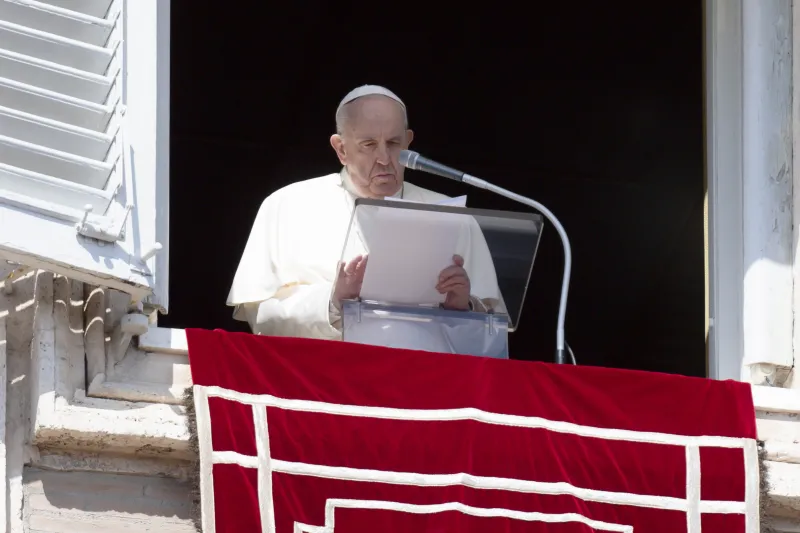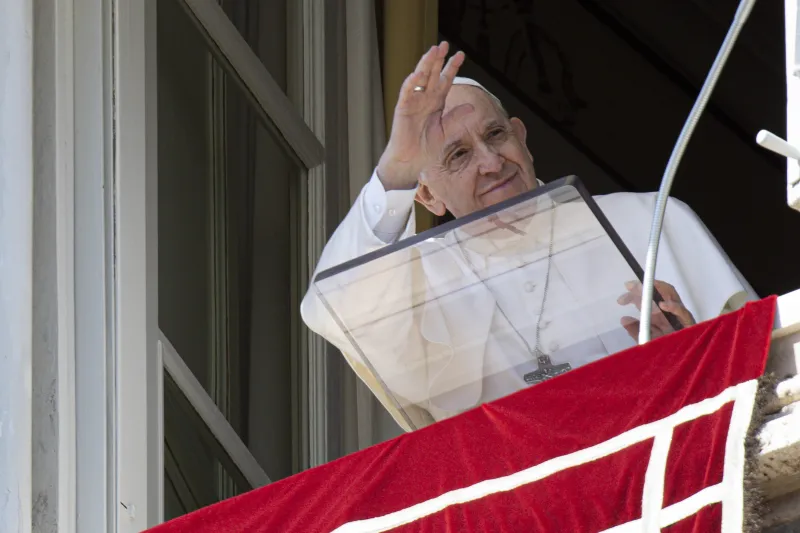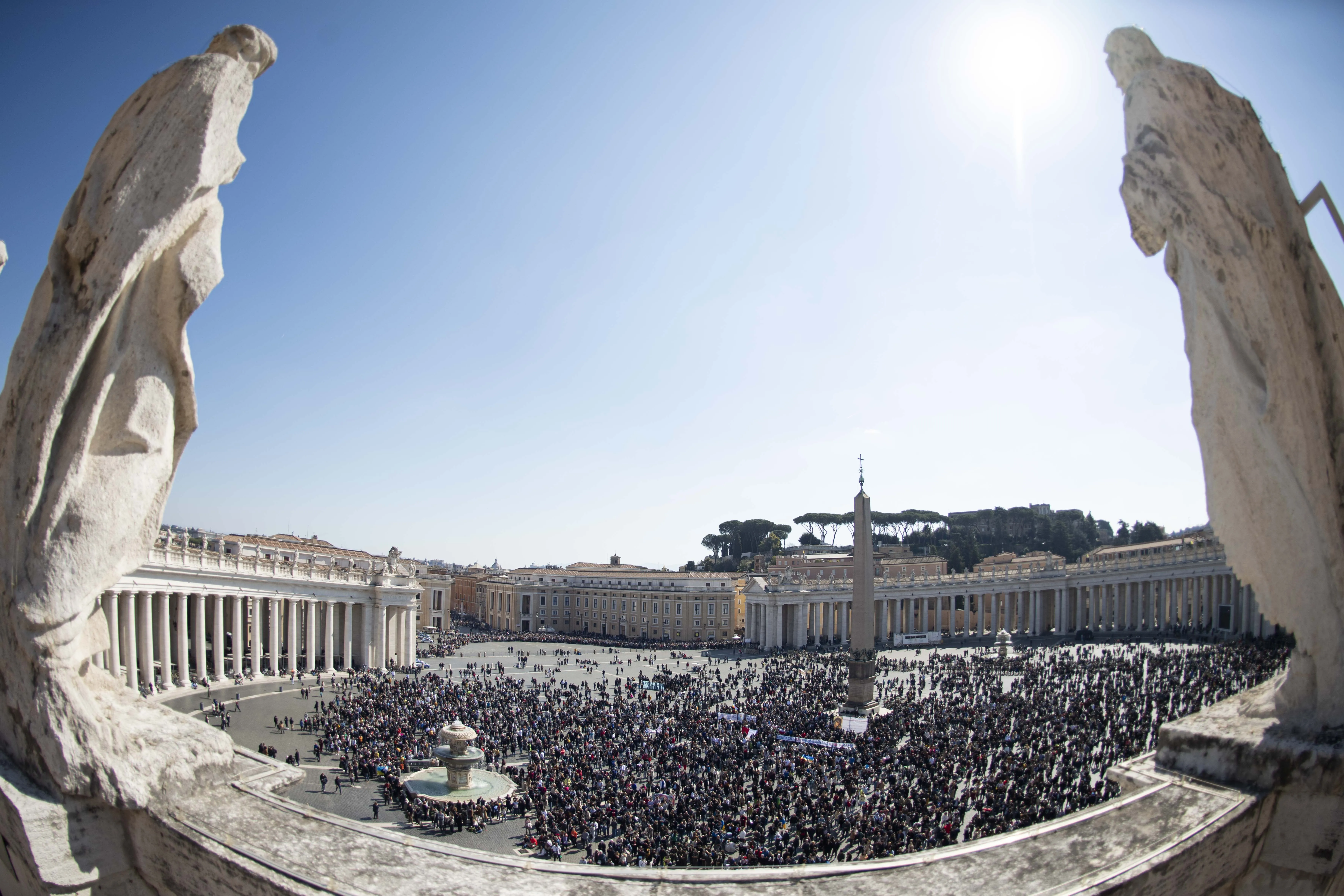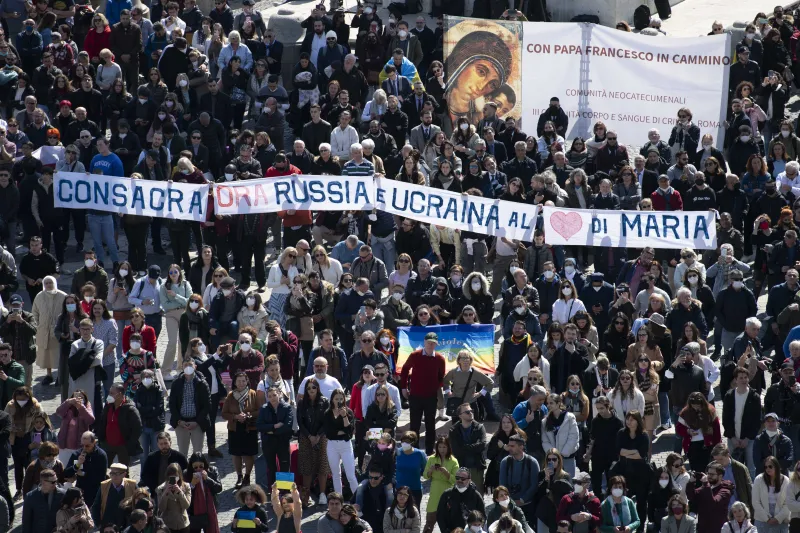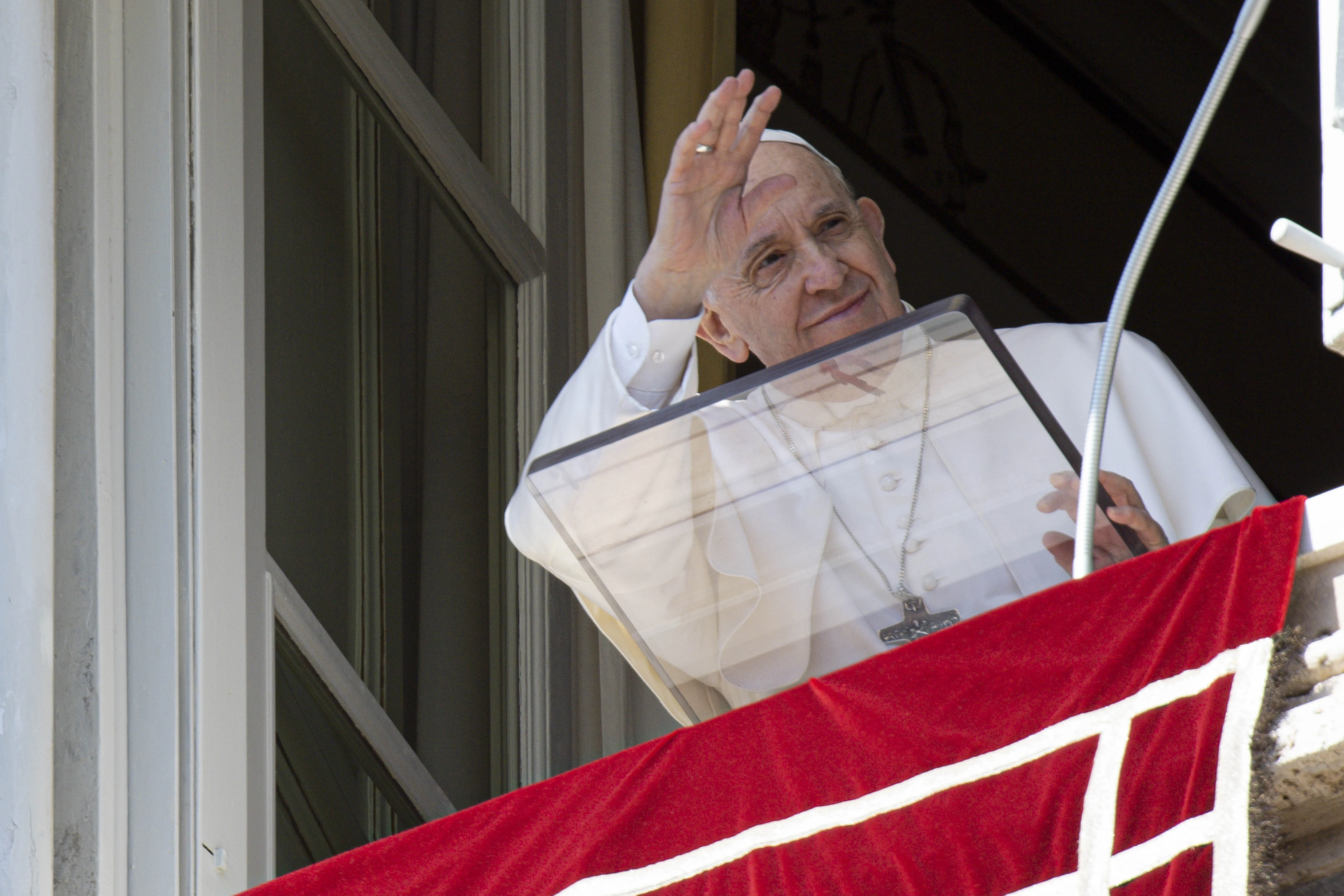
Coveting wealth and possessions blind us to the ‘true goods of life,’ Pope Francis says
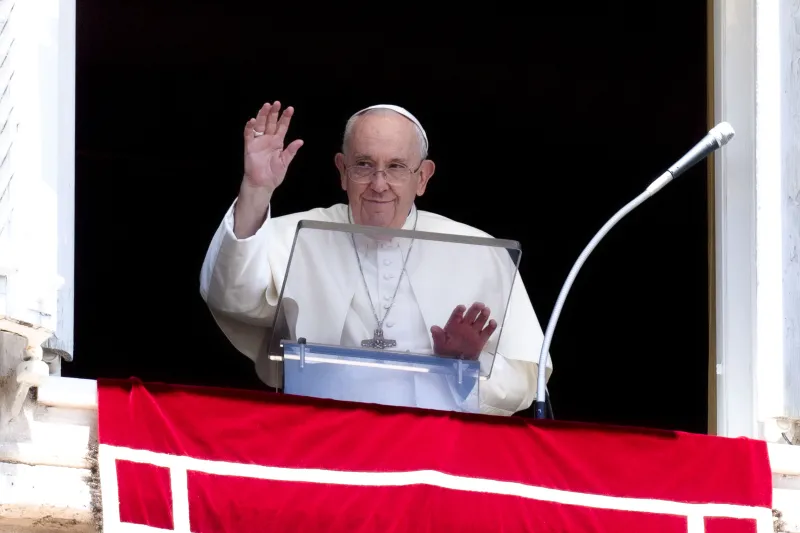 Pope Francis reflected on the dangers of coveting wealth and possessions during his Angelus reflection in St. Peter’s Square in Rome on July 31, 2022. / Vatican Media
Pope Francis reflected on the dangers of coveting wealth and possessions during his Angelus reflection in St. Peter’s Square in Rome on July 31, 2022. / Vatican Media
Washington, D.C. Newsroom, Jul 31, 2022 / 06:32 am (CNA).
A day after returning to Rome from his weeklong trip to Canada, Pope Francis on Sunday reflected on the dangers of coveting wealth and possessions.
In Sunday’s Gospel, Jesus responds to a man who wants his brother to share his inheritance with him. “Take care to guard against all greed,” Jesus tells the crowd, “for though one may be rich, one’s life does not consist of possessions” (Lk. 12:15).
The Holy Father noted that rather than entering into the details of the man’s situation, he “goes to the root of the divisions caused by the possession of things”: covetousness.
“What is covetousness? It is the unbridled greed for possessions, always desiring to be rich,” the pope said, speaking to pilgrims in St. Peter’s Square before the weekly recitation of the Angelus.
“This is an illness that destroys people, because the hunger for possessions creates an addiction. Above all, those who have a lot are never content, they always want more, and only for themselves. But this way, the person is no longer free: he or she is attached to, a slave, of what paradoxically was meant to serve them so as to live freely and serenely,” Pope Francis warned.
“Rather than being served by money, the person becomes a servant of money.”
The pope identified covetousness as a “dangerous illness for society as well,” pointing to the greed that fuels wars and in particular the “scandal” of the arms trade.
“And so, let us try to ask ourselves: Where am I at with my detachment from possessions, from wealth?” the pope asked. “Do I complain about what I lack, or do I know how to be content with what I have? In the name of money or opportunity, am I tempted to sacrifice relationships and sacrifice time with others? And yet again, does it happen that I sacrifice legality and honesty on the altar of covetousness?”
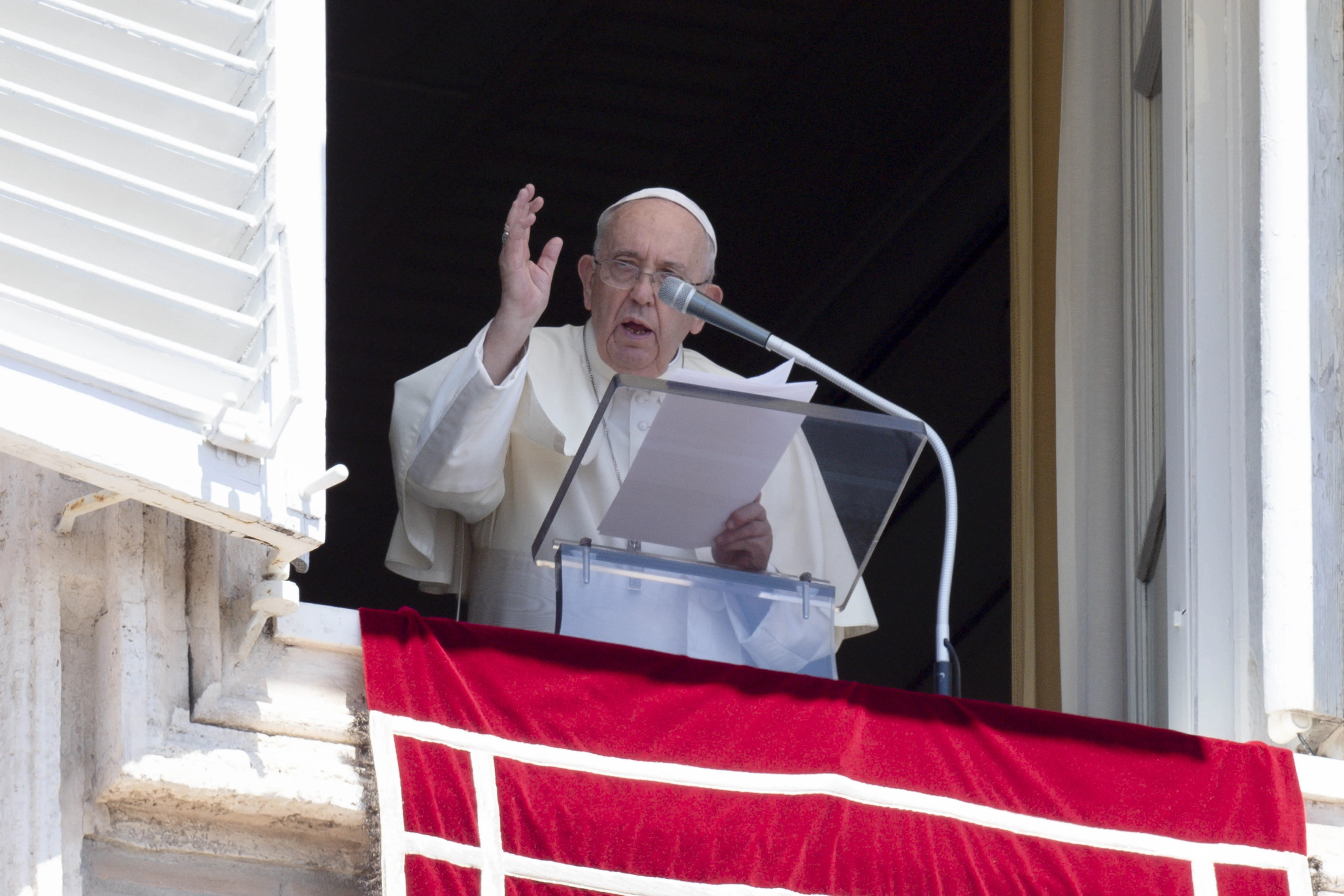
The pope next shifted to focus on the “richness” of God.
“And so, we might think, so, no one should desire to get rich? Certainly, you can; rather, it is right to want it. It is beautiful to become rich, but rich according to God! God is the richest of anyone,” he said.
“He is rich in compassion, in mercy. His riches do not impoverish anyone, do not create quarrels and divisions. It is a richness that knows how to give, to distribute, to share. Brothers and sisters, accumulating material goods is not enough to live well, for Jesus says also that life does not consist in what one possesses (see Lk 12:15). It depends, instead, on good relationships – with God, with others, and even with those who have less.”
The pope continued: “So, let us ask ourselves: For myself, how do I want to get rich? Do I want to get rich according to God or according to my covetousness? And, returning to the topic of inheritance, what legacy do I want to leave? Money in the bank, material things, or happy people around me, good works that are not forgotten, people that I have helped to grow and mature?”
Pope Francis concluded by asking Our Lady, who shared in God’s riches, to “help us understand what the true goods of life are, the ones that last forever.”
Following his reflection, the pope thanked all those who assisted him on his trip to Canada, while assuring those suffering from the war in Ukraine that they remain in his prayers.
“Also, during this journey, I did not cease praying for the suffering and battered Ukrainian people, asking God to free them from the scourge of war,” Pope Francis said.
“If one looked at what is happening objectively, considering the harm that war brings every day to those people, and even to the entire world, the only reasonable thing to do would be to stop and negotiate,” he added. “May wisdom inspire concrete steps toward peace.”



